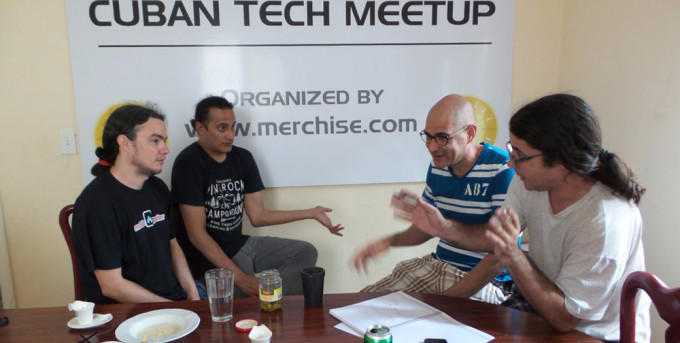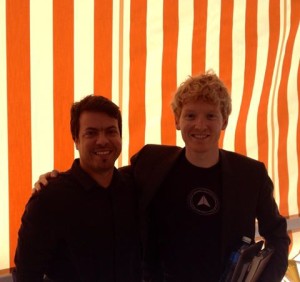
Stripe program: Cuban startups may be registered in the U.S.
Eileen Sosin Martínez
HAVANA — Less than a week after the new amendments to the Cuba sanctions were announced, the early results can be gauged. Cuban startup enterprises may access the U.S. market through Stripe Atlas, a program that allows foreign startups to set up a business bank account in the U.S., receive payments and automate the entire bureaucratic process to maintain a legal presence there.
“We are thrilled about working with entrepreneurs in Cuba to help them take off, expand their business and fully access the Internet economy,” Stripe told Progreso Semanal.
Patrick Collison (shown in photo at top), the company’s CEO, was in Havana as a member of the group that accompanied President Barack Obama. When the announcement was made some days ago, he wrote in the company’s blog:
“Thanks to Tuesday’s (March 15) changes, we’ll be working as quickly as possible with our partners, including Silicon Valley Bank, to enable Cuban entrepreneurs to easily […] set up U.S. bank accounts, and use Stripe to start accepting payments from customers around the world.”
As an essential part of its operation, Stripe Atlas finds associates in each country where it operates, who form a global network of collaborators or “senders.” It is they who filter the multitude of local applicants, so that those who complete the process have the specific abilities to grow and create a potential demand in the U.S. market.

In Cuba, that function will be assumed by the Merchise Startup Circle, a group of programmers who create a community among their colleagues and organize events about technology and entrepreneurship on the island.
“I believe that we should credit Stripe for the interest it showed long ago,” says Alex Medina, a member of Merchise. “In other words, they wanted to act but they faced obstacles, basically in financial and legal issues. The latest regulations cleared those obstacles.” In fact, Atlas has been in operation less than a month, in a beta (test) version.
After the opening, what’s the next step? “We have to sit down with them, coordinate things. An ideal scenario depends on Atlas being able to grow and keep the pace that’s needed, that supports the volume of demand it will receive on a global level.”
Rodney Hernández, a member of the group, points out that the ecosystem of startups in Cuba is still nascent, especially because of the lack of access to the Internet. “There’s a big potential, due to the education and capabilities of the programmers; the technical level is very high. But they don’t have many skills in how to do business, in marketing. They need a boost — connections, learning how to globalize ideas — because the Cuban market is very small.”

The chances for success transcend the enterprises and are affected by the national circumstances. A startup defines itself by its speedy growth, so, yes, they’re in a hurry.
“Worldwide, these companies function at a speed at which Cuba is not yet moving. So, to integrate the country into any efficient business model requires people who act and respond rapidly,” says Medardo Rodríguez, founder of Merchise.
He believes that a “wish list” for Cuban startups would follow this order: a legal framework and a protocol for how to do things; financial instruments that allow the business to become more productive; and learning how those mechanisms function in other countries, so the startups may globalize. “The projects should function not only in Cuba but everywhere,” Rodríguez says.
For now, Atlas opens the door to the greatest financial and service market in the world — the United States. Although in Cuba the term “startup” is not formally applied, Medina says, there are enterprises that function as such. Medardo opines that the real potential is yet to be seen.
“What we have is not yet visible because of obstacles that are rather logistical. In other words, when those obstacles are cleared, the startups will begin to expand.”

